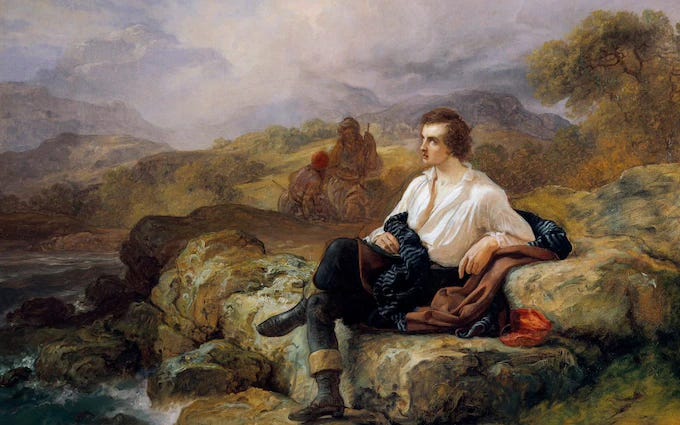In the creative industries, no one wants to be middle class
But if you think that helps working class creatives, it's not that simple...
My boyfriend and I were having a discussion the other day around class. Specifically, how it’s currently very uncool to be seen as generationally wealthy. Now, this isn’t anything new. People - white people mostly - have been trying to make themselves seem more working class for at least a decade now, but it hasn’t always been the case. Together, we thought back to a short but recognisable time in 2008 when Jack Wills, Hollister and Abercrombie were the height of fashion. During that time, I actually remember wanting to come across as more wealthy than I was—even wishing that my family had the kind of money to send me to a private school. Obviously now - with a fully developed brain - I’m glad they didn’t.
Trends change, but wanting to come across as more working class (aka more relatable, more talented, more hardworking) has been lingering on for some time and is particularly rife in the creative industries. The other day, I was watching an Instagram video of the poet, Holly McNish, reading one of her poems. In the comment section, someone had written “Middle class clown”. Holly responded that she didn’t think that was fair. She wasn’t a clown, but she was middle class. There was a bit of back and forth where the original poster accused Holly of putting on a “street” accent, which Holly admitted to in the early days of her career. “I’ve had many organisations try to force me into the working class bracket,” she said.
Similarly, my boyfriend once went on a few dates with a writer and poet who spoke with a heavy West London accent and gave all the illusions of being very working class. It didn’t take long for him to discover that the flat she lived in was bought outright for her by her wealthy father and that her upbringing was - unlike his as a working class Black man - full of hidden privileges. I could reel off more creatives who have tried to shed their middle class coats to gain popularity, but you get the idea.
Holly’s point about being forced into the working class bracket did interest me though. It reminded me of the shock we got when it turned out that Rita Ora - with her braided hair and laid edges - was the same ethnicity as Dua Lipa. And yet, looking back, it was clear that her label, Jay Z’s Roc Nation, simply wanted another Rihanna—so they made one. It didn’t matter that she was white, as long as she played the part convincingly. Obviously, artists and poets have a responsibility to push back against these kinds of demands, but you can see why they work, why they seem so sparkly and attractive. If someone in a position of power tells you this is what you must do to succeed, you’d need an iron-clad sense of right and wrong to say no.
Until you reach the safety of commercial success in the world of poetry, music and art - until you are in league with the likes of Holly McNish and (cough cough) Fred Again - as a middle class person, it can benefit you to pretend to be more working class. Especially in a cultural climate that thirsts for working class content without the experiences and barriers that come with it. And while I’m sure I’m preaching to the choir here, it’s worth mentioning that doing so is not a victimless crime. We already know that the state of the arts in the UK is dire, with only those that come from generational wealth able to break in. But to then cosplay as someone who comes from less is an additional kick to the gut, especially when there are so many genuinely talented creatives who can speak truthfully about their lives and experiences. If people want to hear from working class creatives, then we need to hire genuine working class creatives, not forge them in some strange talent factory by changing the way they speak, dress or do their hair.
Writing this piece, I’m reminded of the nepo baby discourse of last year, how people weren’t actually calling for the guillotine for all celebrity children, just an acknowledgement of where they came from and how it helped. I can’t help that I was born in Lewes with my silly “I look quite pretty!” Keira Knightley voice. But I can make sure I don’t pretend otherwise—and then profit off the lie.
Often, it’s said that art is the search for truth. It’s my belief that one cannot create authentic, beautiful, life-changing art forms if you are pretending to be someone you’re not. And what is creation for, if not that?
For more writing and poetry, follow me on Instagram @alannaduffield







I understood some people had a leg up in life when I was a kid, but I didn't truly realize it until I became an adult.
Coming from "working poor" immigrants and seeing my friends inherit cars, and some of them even homes, was very eye-opening.
Nonetheless, I'm not demonizing people who had a leg up. But pointing it out will give peace of mind to those who are less fortunate.
People born to lawyers and physicians see and operate through life much differently than those born to taxi drivers and hotel maids.